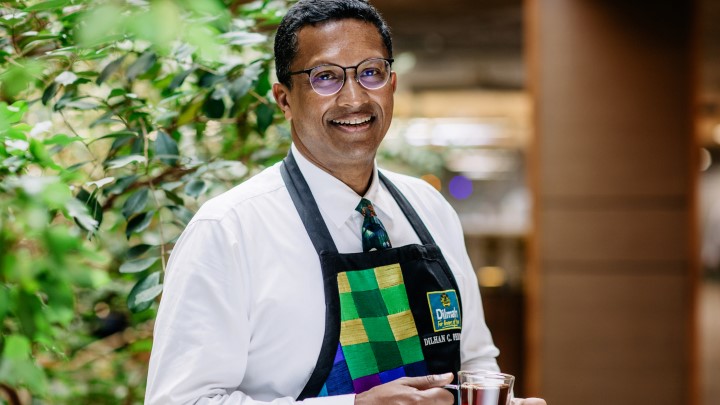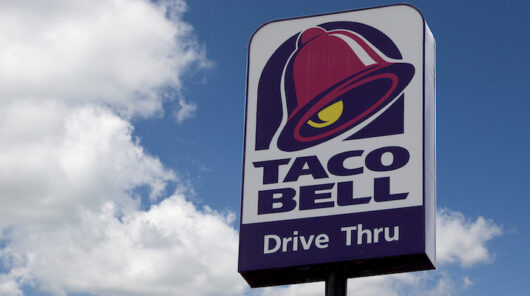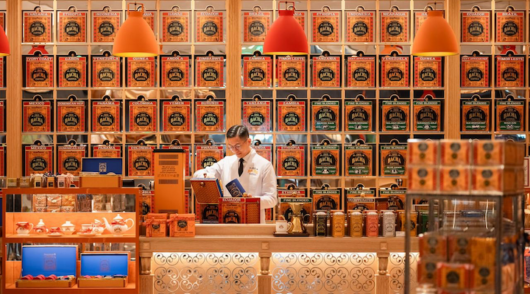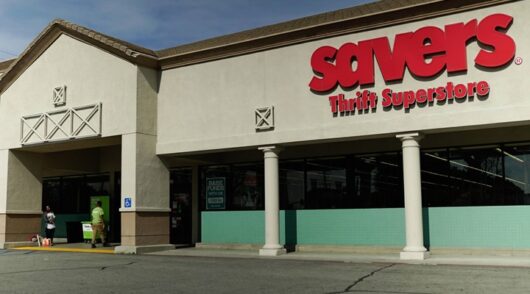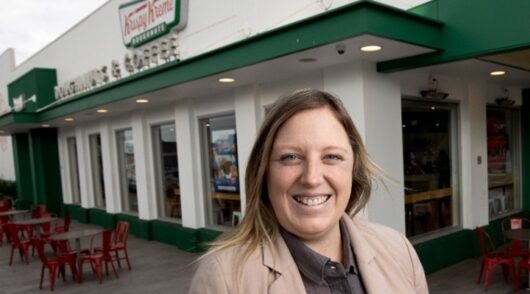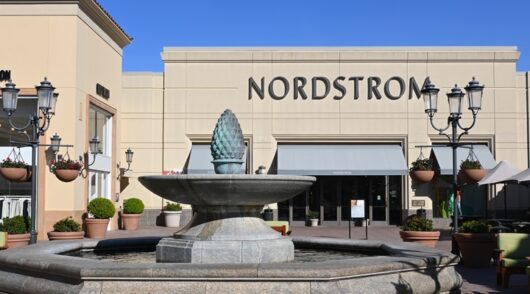For the past 40 years, tea maker Dilmah has been a major player in the global tea industry. Now, with a new generation of tea drinkers rising, the business is staking its claim on the luxury tea space. Here, we speak to CEO Dilhan Fernando about how the business is growing, why it’s different from other tea brands, and how climate change is driving innovation in the tea industry. Inside Retail: To start with, I wanted to get an idea of how the broader tea industry has been changing over the pa
past few years.
Dilhan Fernando: My father [Dilmah founder Merrill J. Fernando] first entered the tea category in 1985 in Australia with the promise of authenticity. As a family business, we are formed on certain fundamentals, and a foundation that we can’t compromise on, so we maintain our commitment to purity of origin.
The industry has moved in the direction of multi-origin blending, particularly following the Global Financial Crisis. That blending is tied entirely to cost reduction.
When you go back to the heyday of tea, when Aussies drank more tea than coffee, it was largely all pure origin teas. You would drink Ceylon tea, you would drink tea that came from Sri Lanka or India. In a sense, you could say that Dilmah is staying true to the values that created the brand, but which are quite rare today.
In the global tea category, we’re very much a speciality tea in a market that has become commoditised – and that was accelerated by the GFC, which led too many wonderful owner-operators and family-run businesses to change hands and so we’ve had the emergence of several large operations that control the category.
Commercially, that may have been beneficial, but as far as quality is concerned, it changed the game.
The good news, however, is that there’s a new generation breathing fresh life into the tea category – particularly post-pandemic. Gen Z wants quality, they understand the immune-system boosting benefits of tea, and the natural antioxidants.
We’re also seeing a growth of appreciation of tea among Baby Boomers and the older generation, but there’s an emphasis on herbs and infusions, which is largely peripheral to the core of the product.
And, unfortunately, this has meant an attrition of the tea category. Ten years ago, maybe 80 per cent of the market was made up of black tea, but today that’s under 70 per cent – the emphasis has been on developing alternatives.
Our focus is on adding value, and bringing quality, to the core of the tea market. We’re farmers. We grow our own tea and have 36 different tea gardens that produce a multitude of different teas. Our commitment is such that we taste around 10,000 different leaves each week, just to find the best for each different Dilmah tea.
I think globally the category is in growth, it’s around 4-5 per cent annual growth, and it’s buoyed by its connection to natural health, wellness and its health benefits. It’s also supported by the move away from alcohol.
It did regress in recent years, as coffee is growing, but the wonderful thing is that we have young consumers who are enjoying afternoon teas, and are looking to different tea gardens trying to understand the origins.
In tea, it’s the sunshine that forms the brightness, it’s the earth that provides the intensity and the winds that provide the citrus notes.
It’s definitely a herb that is defined by nature and because of this it has an allure for the next generation. Every characteristic of tea isn’t human induced. I could wake up today and think ‘I want to produce a bright, brisk tea’, but if it’s been raining for the past week there’s no amount of technology or investment that can give me that. It’s a confluence of climatic factors that produce different tastes.
IR: You described Dilmah as a specialty tea in a commoditised market, and you recently announced you’ll be launching luxury teas, can you talk me through that? What does the luxury tea space look like, and what do luxury tea drinkers want?
DF: In the luxury tea space, which has been driven primarily by hospitality but today is moving into gourmet food shops and filtering down into mainstream retail, what we’re seeing is a focus on experience. You see this across many categories, but it’s largely connected to the provenance and ethics of the tea.
The consumer is demanding to know whether the tea that they’re trying is worthy of them – and that is an element of luxury that is new in the 21st century. Previously, it was taste that defined whether a product was considered luxury or commodity, but today that definition is influenced by things like, ‘What is your stance on the environment? What are you doing for climate action? What are you doing for people? What are you doing for women and gender balance?’
For us as a family business, my father first started to offer tea directly from origin in 1950. It took him 35 years, because the odds were stacked against him – that’s a whole different story.
What he saw in the 1950s was the blending of origins, and what was to come in cost reductions through that. It used to be normal to mark a tea as ‘100 per cent Ceylon’ (the former name of Sri Lanka), now there is rarely a declaration of origin at all.
We believe that any consumer, but particularly in the luxury space, has the right to know where their products come from. If they’re drinking coffee, where is it from? If they’re drinking tea, where is it from? What are the characteristics?
We think it’s a fundamental aspect of the luxury space – there must be a declaration of where, and how, the tea is grown. For example, we use biochar (burning materials in a vacuum to create carbon rich charcoal) in our agricultural methods, and we involve the consumer in this [through a declaration].
It’s how we tell the story of our teas, and that brings the cup to life. It explains why the tea is so bright, or what effect the water that we used has on the brewing, and that’s the difference. We all hear about consumers wanting stories, and tea has an incredibly powerful story because each characteristic of a tea is tied to a specific aspect of nature.
I think that kind of authenticity is what underpins luxury today. Ten years ago, luxury might have been synonymous with having a cool car, whereas today you’re more luxurious and cool if you have a bag that’s been made at home with recycled fabric. The whole concept has changed.
We love that. It’s more about being authentic, and making sure that the workers’ lives are good. And we work hard to ensure that my father’s philosophy around kindness to people and nature is honoured.
IR: Dilmah has seen some pretty strong online growth in the last few years, can you talk me through that? What changes have you made to better enable e-commerce for your customers?
DF: Online is a tremendous opportunity for our direct-to-consumer business, but it’s really important that we get the technology right in terms of usability. Those concepts have changed considerably with the growth of mobile and social commerce.
I think, in the past, e-commerce was largely a separate channel, whereas today we’re really integrating it into everything that we do. In saying that, I don’t think we’ve done it well enough. We’re still going through that process.
One of the things we have done, however, is change our e-commerce infrastructure. We moved to Shopify, whereas we were on a more dedicated and customised system. I think customers today want e-commerce to be simple and straightforward, and don’t want any fancy tech. They just want it to work on whatever tech they’re using.
We’re also trying to integrate the educational experience there. We have a website called the ‘School of Tea’ where customers can learn about the different types of tea and, if they like what they see, can buy it right there.
It’s about understanding that online commerce shouldn’t be separate, it should be a part of everything we do.
IR: Last year, Dilmah talked about exiting some Australian supermarkets over cost disputes. How has that progressed?
DF: The context of that was that when Dilmah was pricing in the Australian market, the Australian dollar was much stronger. It was around A$1.10 to US$1. But that’s changed a lot, and because of the emphasis on price in Australian supermarkets, we haven’t been able to make any major changes to our prices.
We’ve submitted applications to increase the prices to reflect that, but it’s always been token increases.
And that came to a head during the pandemic. There has been accelerated inflation, and more expensive freight killed us, and at the time we decided it wasn’t time to increase prices. We were in the middle of a pandemic, and we didn’t want to take advantage of that crisis for profit, so we wanted to wait until the dust settled.
We took a hit, and Sri Lanka itself took an even bigger hit, but we wanted to wait for it all to stabilise. Once it did, and we did the numbers, we realised that we were really struggling [financially].
So last year, I went to the media to make the case for why we needed to increase prices on the store shelves, and I must say that we’ve had a very positive response from the trade. They’ve shown their willingness to engage.
Whenever we would put forward price increases, they’d put us up against other tea makers and ask why our prices should be higher. But, we are outliers in the market in the fact that, as growers, we are at the front line of climate change, we’re dealing with climate action. We’ve got research stations and are working with seven universities around the world to help the tea industry understand what we need to do to build climate resilience.
We’ve got 82 schools that educate the children of our workers, we built and run hospitals around Sri Lanka and were set up to deal with Covid – they’re still operating to enhance health and welfare. The list goes on, there are around 150 projects happening each year, and a minimum of 15 per cent of our pretax earnings are used for these projects.
So we are an outlier, and what we have agreed is that we need to be treated differently, because these things cost money. We are different from trader-owned brands, because there are plenty of cheap avenues of getting tea in the world that come with the risk of chemical residues or human rights violations, but those things are not acceptable to us or our customers.
IR: You’ve touched on the inflationary pressures hitting the FMCG market at the moment. How has that affected Dilmah, and what has it meant for your product strategy?
DF: The pressures were initially largely focused on freight costs, which have, thankfully, cooled. I think the shipping companies really gouged a lot of profit out of the pandemic, and you can see that in their profit and their results. Some of them made 10 years worth of profit in a single year, and that had an impact on every category.
Beyond that, it’s been packaging. If you look at the emphasis on sustainability today, you can buy packaging from someone who’s cutting down primary rainforests and doing it all on the cheap, or you can buy it, as we do, from a Swedish company that ensures that it’s using renewable sources, or not adding chemicals to the environment, and can provide certification to prove it.
There are cheaper options available, but they’re nasty. You can get chlorine-bleached [filter] paper for probably half the price of what we’re getting, but we buy it from a particular source in Germany, which is known to be the best in the world. That comes at a price.
It’s a tough choice, but we need to make sure that every component and element of the product is right. Throughout the pandemic, a lot of the costs went up for those suppliers as well. There have been supply-chain issues across the board, and the fact is that doing the right thing, and making the right decision on the ingredients in a product come at a cost.
It can take a toll on the shelf, because your product is more costly than a competitor, but the old way of pricing doesn’t work anymore. There are all of these elements now that we need to take into account.
If we wanted to be cheaper, and offer our products at deeper discounts, we could probably be a much larger and richer company, but we wouldn’t be doing the right thing.
IR: You mentioned how tea growers are at the frontlines of climate change. What have been some of the difficulties that have come from that?
DF: Where the product is concerned, tea is quite adaptable. It doesn’t necessarily have a specific temperature range that it can grow in. When the temperature gets warmer and there’s more humidity, the flavours can get more intense [but it still grows].
However, where the impact has been felt is in wet areas that have become wetter, and dry areas that have become dryer. We’ve had to look at some interventions that we can make, and largely we’ve looked to the past.
Biochar, for example, is a process that comes from the Aztecs. It’s a biomass that is burned in a vacuum, and then we put it into a natural manure slurry and put it into our soil. It feeds the plants for a long time, and captures the limited rainfall.
What we’ve found is that where there’s a problem, there is invariably a solution.
We launched a new centre called Genesis earlier this month, and it’s a centre for sustainable futures. It’s dedicated to finding nature-based solutions, and we’re finding that there are measures that can be taken. Of course, they add to costs.
The deeper impact is that, while tea is somewhat stable, we have an increase in extreme weather events, which means floods or, for example, two weeks ago we had several of our workers’ houses collapse because of a landslide. And you can’t just say, ‘Hey sorry, that’s not my problem’, you have to help them. So we re-housed them, and we’re taking care of them.
Dilmah is irrevocably connected to our tea gardens and our people. The nature of the relationship between our business and our team has changed, because we need to look after them to a much greater degree.
IR: As you mentioned before, Dilmah has been around for 40-odd years at this point. What have you learned about running a successful, long-lasting business, and about meeting customer expectations, that you could share?
DF: I think it’s fairly simple. My father never had a marketing qualification. He studied up to what is generally called the advanced levels, at 17 or 18, and then he followed his passion. I think not having a technical qualification was a blessing in disguise for him, because it meant that he did what he believed he should do – rather than what he thought he should do.
I think the single most important thing in a product is honesty – not the appearance of honesty, but genuine honesty.
When we go to the market and say that we want to make the best tea, we genuinely do. It’s not something that my father could have done on his own, and I can’t do it on my own either. It’s something that must percolate down to the guys working the gates, letting people into our compound, it has to embrace everybody.
That’s our greatest strength as a brand: a belief in us [by our team and people outside].
That’s a beautiful thing. When you’re honest, those relationships come into play and it’s what makes a business special.
Knowing that there are more than 14,000 families depending on what we do every day, and that there are more than 100,000 people each year who benefit from what we do, keeps us honest.
My father taught me to remain humble, because you can do everything right but it’s the customer who ultimately decides, and when you have that humility, you learn to listen to your consumer.
We have an email address set up, founder@dilmahtea.com, for customers to reach out. Sometimes they’re angry and something’s gone wrong, and sometimes they’re happy, but the point is to answer each of those and listen.
This story first appeared in the July 2023 issue of Inside FMCG Magazine.

